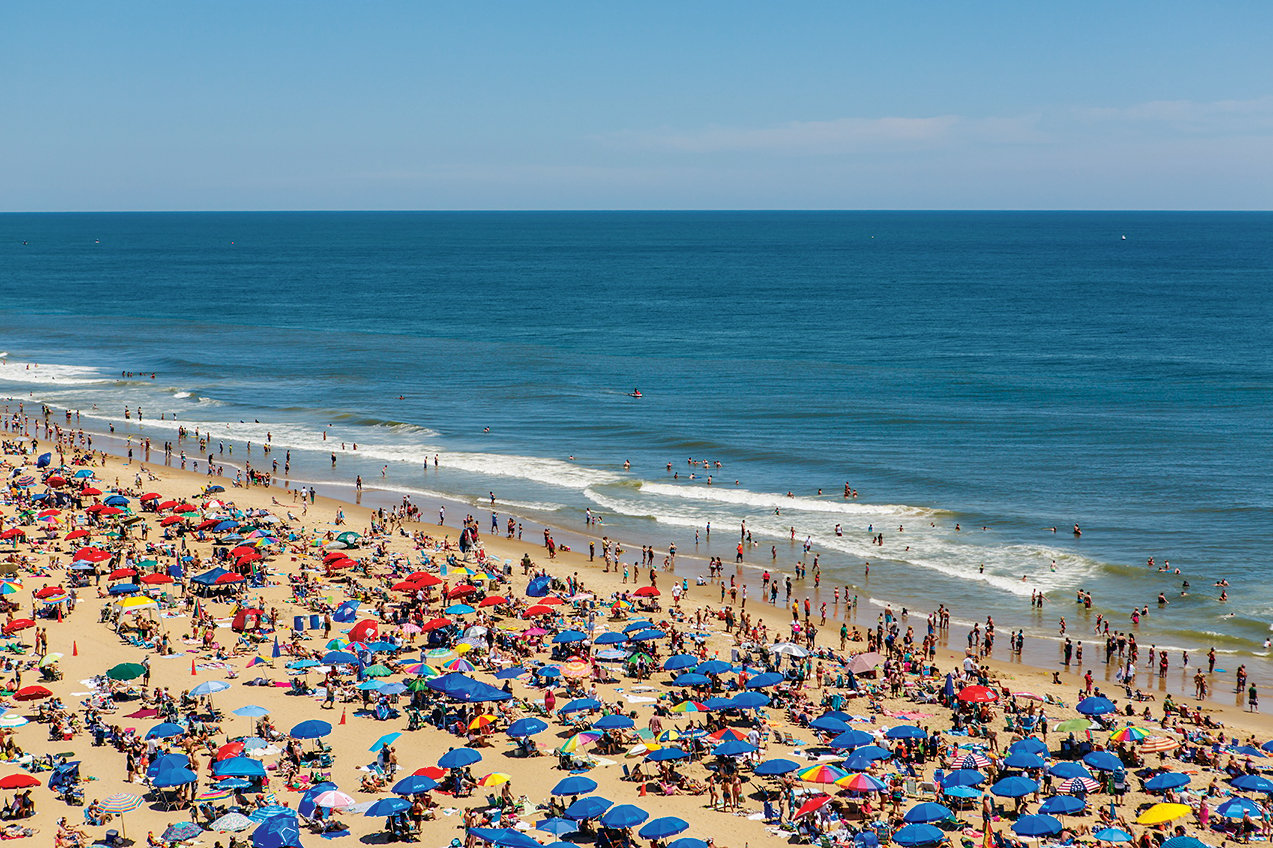Headed to the Delaware beaches? Here’s a quick look at some things you might want to know before you hit the boardwalk.
How to get there
From affordable to astronomical.
Car
Pro: You can blast the new Megan Thee Stallion album. Con: Given the inevitable congestion, the most memorable jams are likely to be of the traffic variety. Cost: Somewhere around $20 for gas and tolls.
Bus
BestBus offers weekend trips to Rehoboth and Dewey, Memorial Day through Labor Day. Cost: $40 each way.
Rental car
Zipcar allows you to pick up from dozens of DC locations. Cost: Starts at $76 a day plus a mileage fee; gas included.
Luxury van
Companies such as Atlantic Transportation Services offer chauffeur-driven Mercedes Sprinters. Cost: $135 an hour plus tip. You also have to pay for the driver’s trip back.
Helicopter
Monumental Helicopters will whisk you up to Delaware Coastal Airport in about 45 minutes. Cost: $1,200 from Tipton Airport, near Fort Meade. Flying out of Reagan National will kick it up to at least $3,000.
What to do if . . .
Your Neighbors Are Noisy
First, try to handle it yourself. But if it’s 3 am and “Old Town Road” is on repeat, the cops are an option, says Rehoboth police chief Keith Banks. They’ll usually just issue a warning for a first violation. “Sometimes when alcohol is a factor, people are loud and don’t realize it,” Banks says. “Most are understanding. Some are just—for lack of a better word—obnoxious.”
You Get Stung by a Stingray
These injuries are actually more common in the ER than jellyfish stings, says Nick Perchiniak, an emergency-department physician at Beebe Healthcare, near Rehoboth. Rinse the wound with fresh water, then immerse it in hot water to break down the toxins. Get medical attention if there’s persistent pain, bleeding, or infection.
You Get Arrested
Whether you’re nabbed for peeing in public or fighting at the Rusty Rudder, your best strategy is to be calm and cooperative, says Georgetown, Delaware, attorney Michael Abram, who often defends busted beachgoers: “If you get in trouble, be on your best behavior. If you act like a jackass, you might be spending a couple days in jail.”
You Spot a Shark
It doesn’t happen often, but if do you see a fin slicing through the waves, Rehoboth Beach Patrol captain Kent Buckson suggests yelling something like “Shark! Get out of the water!,” then running to alert lifeguards. In the even less likely event that you get attacked, “you need to fight,” says Buckson. “Grab their gills or puncture their eyes.”
Tips from a local
We hit up longtime resident Bob Yesbek, who blogs as the Rehoboth Foodie, for some advice.
How long does it take to be considered a local?
“If you’re born here, you don’t think of anyone as a native except for other people born here. Rehoboth is a small town. I’ll tell people I’ve been here for 16 years, and a lot say, ‘Well, you’re one step from a vacationer.’ There are vacationers, there are locals, and then there are natives. But vacationers make everything we do possible.”
What do tourists do that drives locals crazy?
“They should avoid driving. I have a friend who’s a psychologist who calls it ‘vacation syndrome’—they think they don’t have to follow rules. Unfortunately, that doesn’t apply when you’re driving a car. These people will cross four lanes of traffic and over a median strip because they forgot to make a turn.”
What’s the best month at the beach?
“October. We have the Sea Witch Festival and a huge jazz festival. The weather is just about perfect, and it’s pleasantly cool in the evening. We have a really long fall here, and the ocean water is warm. Unfortunately, we also have a long winter.”
This article appears in the July 2019 issue of Washingtonian.





















